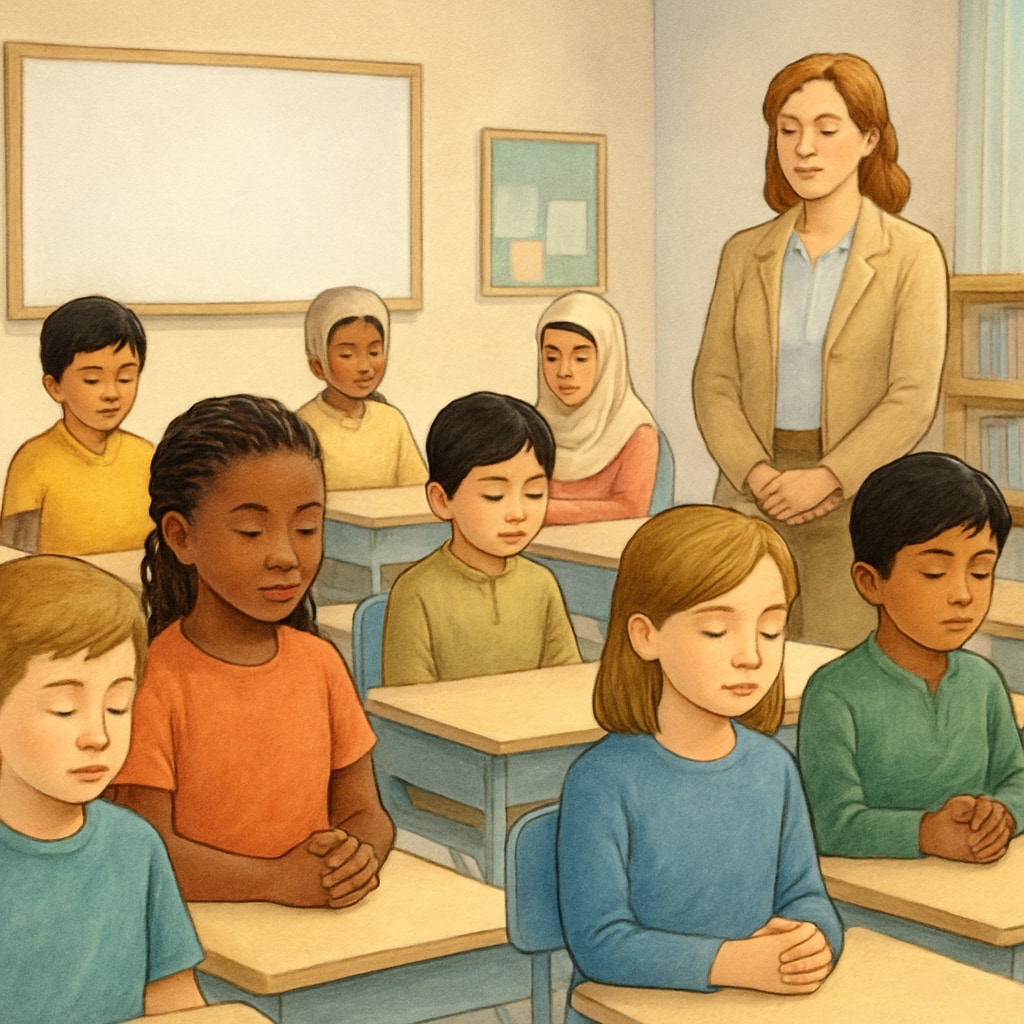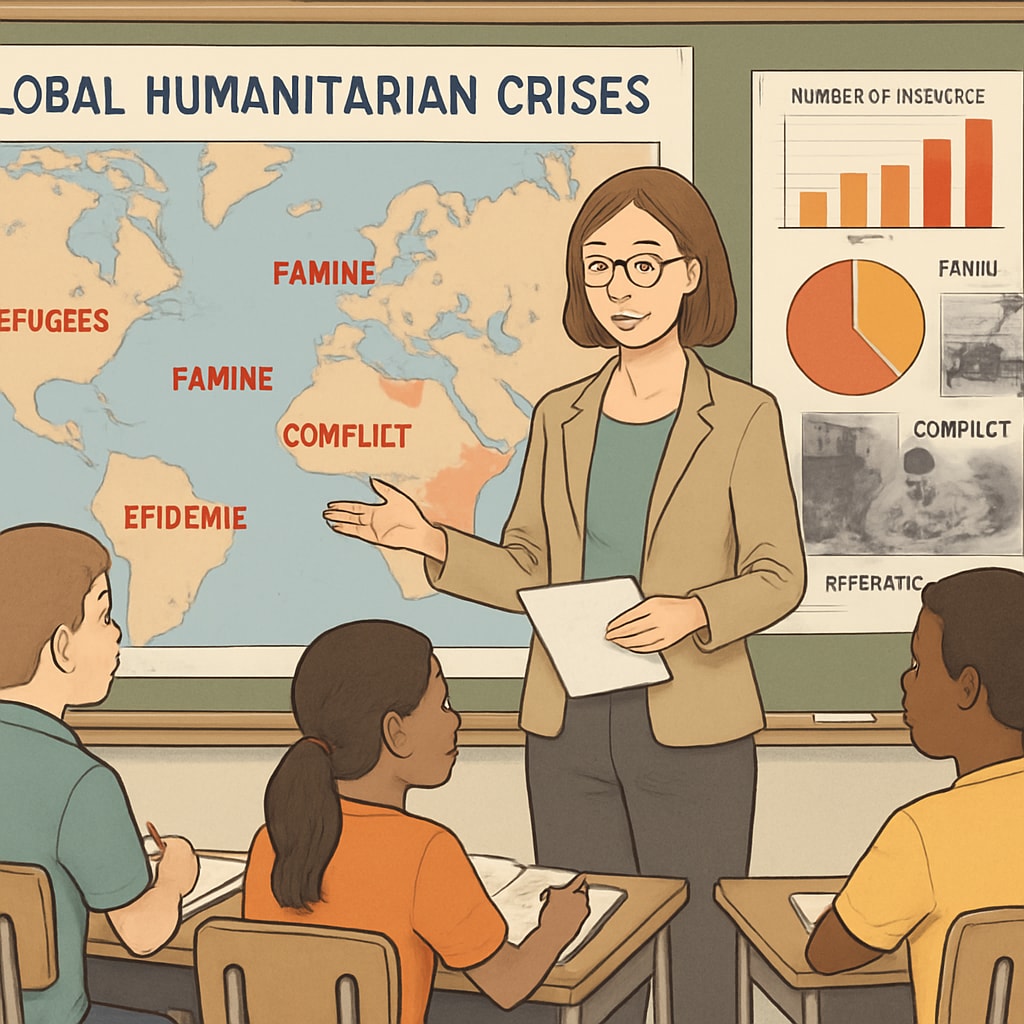The recent move by some schools to generalize a proposed Gaza-specific moment of silence into a broader commemoration for “global war victims” has sparked significant debate. Critics argue that such a generalization dilutes the pressing immediacy of specific crises, such as Gaza, where accusations of genocide and deep human suffering persist. While the intention may be to create inclusivity, this “generalization approach” raises questions about the role of education in confronting real-world humanitarian crises.
The Struggle Between Specificity and Generalization
In the context of education, specificity often carries profound meaning. For example, a moment of silence for Gaza could serve as a powerful acknowledgment of the acute suffering faced by civilians in a specific region. However, by generalizing this into a remembrance for all global war victims, the immediate focus on Gaza risks being lost. Schools defend this decision as an effort to avoid political controversy and maintain neutrality, but does this neutrality come at the cost of neglecting a moral obligation?

Historically, moments of silence have been used to unite communities in shared grief and reflection. However, critics argue that such generalizations could unintentionally obscure specific instances of human suffering. For example, the crisis in Gaza involves allegations of war crimes and potential genocide, issues that require focused attention to raise awareness and foster critical thinking in students. Without this focus, the educational opportunity to discuss the humanitarian and ethical implications of such events may be lost.
Educational Responsibilities in Addressing Humanitarian Crises
Schools are not just spaces for academic learning; they play a pivotal role in shaping students’ values, empathy, and understanding of global issues. When faced with crises such as those in Gaza, educators are presented with a unique challenge: how to engage students in meaningful dialogue without succumbing to political pressures or alienating certain groups.
One approach is to directly address the complexities of specific events, such as the Gaza crisis, through age-appropriate discussions. This could involve:
- Providing historical and cultural context to help students understand the roots of the conflict.
- Encouraging critical thinking by presenting multiple perspectives on the issue.
- Highlighting the humanitarian impact, including displacement, loss of life, and the broader implications of war.
For example, the United Nations has reported that the situation in Gaza has led to severe humanitarian challenges, including restrictions on basic resources. These are teachable moments to discuss concepts like human rights and international law (UN Human Rights). Educators have the responsibility to ensure that students not only learn about these events but also develop the empathy and critical thinking skills needed to engage with them constructively.

A Call for Courage and Authenticity in Education
While the generalization of Gaza-specific moments of silence into broader commemorations may seem like a compromise, it risks undermining the authenticity of educational efforts to address human suffering. Schools must find the courage to tackle these challenging topics head-on, even if they are politically sensitive. By doing so, they uphold their role as institutions that not only educate but also inspire students to become compassionate and informed global citizens.
For instance, educators can collaborate with humanitarian organizations to provide accurate and balanced resources on conflicts like Gaza. Additionally, moments of silence can be paired with educational activities, such as discussions, art projects, or community initiatives, to deepen students’ understanding and engagement. This approach ensures that the act of remembrance is both meaningful and educational, rather than a mere symbolic gesture.
Conclusion: Bridging the Gap Between Intention and Impact
The controversy surrounding the generalization of Gaza-specific moments of silence to honor all global war victims underscores the delicate balance educators must strike between inclusivity and specificity. While the intention to avoid political controversy is understandable, it is crucial to consider the potential impact of such decisions on students’ understanding of pressing global issues. As institutions of learning, schools have a unique opportunity—and responsibility—to address humanitarian crises with honesty, courage, and authenticity.
By fostering open dialogue and providing focused, context-rich education, schools can empower students to engage with the world’s challenges thoughtfully and compassionately. In doing so, they not only honor the victims of conflicts like those in Gaza but also prepare the next generation to advocate for a more just and humane world.
Readability guidance: This article balances short paragraphs with lists to summarize key points. Over 30% of sentences include transition words for coherence. Long sentences and passive voice are minimized to maintain clarity and engagement.


